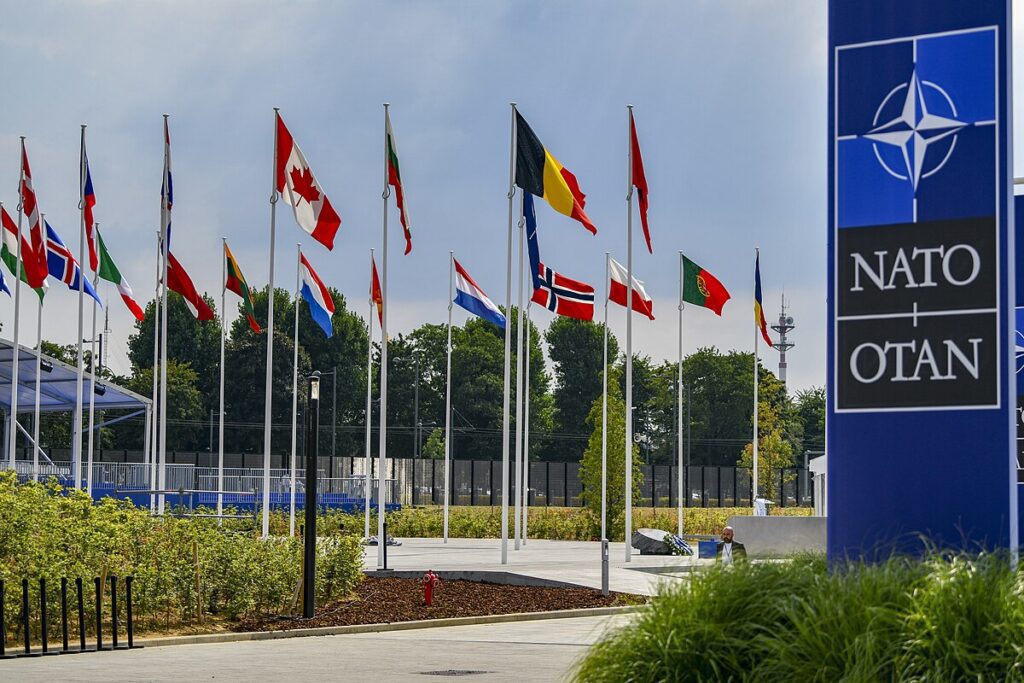The NATO Leaders are to gather in Washington DC this week to commemorate the 75th anniversary of the formation of the western defence pact at a time when it faces emerging security challenges from Russia in Ukraine and an emboldened China in the Asia-Pacific. Organized by the United States’ President Joe Biden, the summit will center around the reinforcement of backing for Ukraine and the directions of the global security perspective.
Support for Ukraine Amid Escalating Conflict
The major subject on the agenda is funding for Ukraine particularly following the recent Russian missile strikes on Ukrainian cities such as the capital Kyiv and children’s hospital. The strikes claimed the lives of at least 31 people. Counterparties are supposed to declare new security guarantees and contribute two extra €40bn ($43. 2bn) for the following year. Also, there are plans to open a new military headquarters in Germany to improve Ukraine’s military training and outfitting.

NATO Membership for Ukraine
A contentious topic is going to be the membership of Ukraine in NATO. Ukraine’s bids to join being limited by internal reform thresholds and existence of possessing Russia-specific weapons, members of the NATO alliance have ramped up support for the conflict-stricken country. The object will acknowledge Ukraine’s continuous reforming processes and give evidence of support to Ukrainian belonging to NATO.
Defence Spending and Financial Contributions
Another problem is the defence budgeting issue. The US has for a long time been more aggressive in demanding more funds from other partner countries especially in the military. Altogether, the progress towards realizing the aspect of the 2014 goal that requires each country to spend not less than 2% of its GDP for the defense by the year 2024 will be ascertained. However, only 23 members meet this target and still, countries like Canada, Spain, Italy, and Portugal are low in this aspect. It will be anticipated that this divide shall be among issues that shall be given much attention by the participants.
Addressing China’s Growing Influence
NATO will further emphasize its support for Asia Pacific countries such as Australia, Japan, and South Korea in the face of an increasingly dominant China. Especially Beijing’s military actions on the contested Spratly Islands and the improving relations with Russia. Would address issues to do with the stability of the region and processing strategies that relate to Taiwan which China considers as its own province.
Biden’s Domestic Challenges and Implications
Although it is not one of the official topics that will be discussed at the summit, us domestic politics is sure to make an appearance. As President Biden prepares for his bid in the next general election, the poll numbers are not favorable for him; and former President Trump, a nemesis of NATO, gains even more ground. Partners are beginning to think of the consequences of Trump’s presidency; the direction the US will take in the alliance might be a weaker involvement.
Internal NATO Disunity
From this it can be concluded that internal contradictions within the NATO member-states may be difficult to camouflage even when the union portrays unity. Turkey and Hungary have in the past postpone bids for Finland and Sweden as well as the two countries maintain good relations with Russia. Recent Orban’s meetings with Putin and Xi are widely discussed and seem to strain relations within the alliance.
Key Leaders and Attendees
Other major participants in the summit include current US President Joe Biden, the outgoing NATO Secretary-General, Jens Stoltenberg, Germany’s Olaf Scholz, Italy ‘s Giorgia Meloni, Canada’s Justin Trudeau, and Sweden’s Ulf Kristersson who is attending the summit for the first time. Japanese, Australian, South Korea and New Zealand’s prime ministers along with the President of Ukraine Volodymyr Zelenskyy of the Ukraine will also attend.
Strategic Significance and Future Potential
The debate is especially acute concerning such a significant format of the NATO summit as it is aimed at defining the current threats to security and demonstrating the unity of the participating countries. Therefore, the outcomes of NATO’s 75th anniversary summit will define its evolution and impact on world stability. Washington, DC’s deliberations and decisions on global relations and confrontation risks for the collective alliance will resonate in the future.








